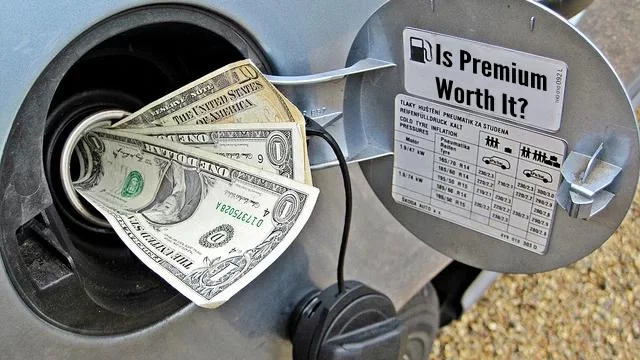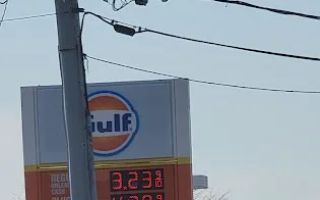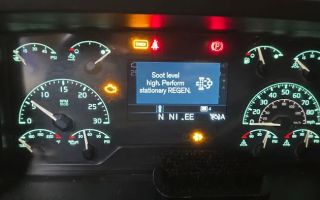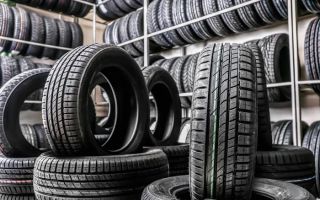How to Reduce Fuel Consumption While Driving: Simple Tips for Better Efficiency
Whether you drive a fuel-efficient compact car or a larger SUV, the rising cost of gas makes it crucial to find ways to reduce fuel consumption. Many drivers often overlook small adjustments they can make to their driving habits or car maintenance routines that could result in significant fuel savings over time. In this article, we’ll explore practical and easy-to-follow tips to help you drive more efficiently, conserve fuel, and keep your gas expenses in check.
Emily, a daily commuter, once noticed that her fuel bills seemed to be increasing despite driving the same routes. Her car, a well-maintained sedan, had good fuel economy on paper, but she was burning through more gas than expected. After experimenting with some small changes, Emily was able to cut her fuel consumption by 20%. This got her thinking about how many others are unknowingly wasting fuel. If you’re facing a similar situation, keep reading for some simple ways to drive smarter and save fuel.

Fuel 4
720 Tonnelle Ave, Jersey City, NJ 07307, USA
Why Does Fuel Consumption Matter?
Fuel consumption directly impacts both your wallet and the environment. Driving habits and car maintenance play a major role in how much fuel your vehicle consumes. By improving fuel efficiency, not only do you save money, but you also reduce your carbon footprint. Every time you decrease your fuel consumption, you’re making a positive impact on the environment by reducing the amount of CO2 emissions your car produces.

Nearest gas station
353 Smithtown Blvd, Ronkonkoma, NY 11779, USA
Fuel-Efficient Driving Habits
One of the easiest ways to cut fuel consumption is by changing how you drive. Many drivers are unaware that small adjustments in their driving behavior can lead to a big difference in fuel efficiency. Here are some essential habits that can help you reduce fuel consumption:
- Avoid Rapid Acceleration and Braking: Sudden starts and hard braking cause your engine to work harder, which uses more fuel. Try to accelerate smoothly and brake gently to improve fuel efficiency.
- Drive at Steady Speeds: Using cruise control on highways can help you maintain a constant speed, reducing unnecessary acceleration and deceleration, which burns more fuel.
- Reduce Speed on Highways: Driving at speeds over 60 mph (97 km/h) can significantly reduce your fuel economy. For every 5 mph you drive over this limit, you can decrease fuel efficiency by up to 10%.
- Minimize Idling Time: Idling wastes fuel. If you’re stopped for more than a minute, it’s more fuel-efficient to turn off the engine and restart it when you’re ready to go.
- Limit Use of Air Conditioning: While using A/C can make your car more comfortable, it also uses more energy, especially at low speeds. Use A/C sparingly to avoid unnecessary fuel consumption.
Maintain Your Vehicle to Maximize Fuel Efficiency
In addition to adjusting your driving habits, proper vehicle maintenance is critical to ensuring that your car runs efficiently. Regular maintenance helps to keep your engine running smoothly, reduces wear and tear, and optimizes fuel efficiency. Here’s how to ensure your car is in top shape:
Keep Your Tires Properly Inflated
Underinflated tires cause more rolling resistance, which forces your engine to work harder, leading to higher fuel consumption. Check your tire pressure regularly and keep them inflated to the recommended levels. This simple step can improve your fuel economy by up to 3%.
Use the Recommended Motor Oil
Using the right type of motor oil can improve your car’s fuel efficiency. Consult your owner’s manual for the manufacturer’s recommended oil type and grade. Using the correct oil ensures that the engine operates at peak performance, which can save fuel.
Change Your Air Filter Regularly
A clogged air filter restricts airflow to the engine, reducing efficiency and increasing fuel consumption. Replacing a dirty air filter can improve your car’s fuel efficiency by up to 10% in some cases. Make sure to check and replace your air filter according to your car’s maintenance schedule.
Regular Engine Tune-Ups
A poorly maintained engine uses more fuel. If you notice that your car is sluggish, it may be time for a tune-up. Regular engine maintenance, including spark plug replacements and fuel system cleaning, ensures your car runs smoothly and efficiently.
Reducing the Weight in Your Car
The weight of your vehicle plays a significant role in fuel consumption. The more weight your car has to carry, the harder the engine has to work. By reducing excess weight, you can increase fuel efficiency. Here’s how you can shed some pounds off your car:
- Avoid Carrying Unnecessary Items: If you have unnecessary items in your trunk or backseat, remove them. Even small changes in weight, such as carrying heavy bags or equipment, can affect your fuel consumption.
- Remove Roof Racks When Not in Use: Roof racks, cargo boxes, or bike racks create additional wind resistance, which can lower fuel efficiency. Only keep them on your car when necessary.
Driving Smarter During Winter
Cold weather can also negatively impact your fuel economy. The engine needs more time to warm up, and the air is denser, which increases rolling resistance. However, there are a few steps you can take to minimize fuel waste during winter:
- Let the Engine Warm Up Briefly: Instead of idling your car for several minutes, start the engine and allow it to idle for 30 seconds to a minute before driving. This will give it enough time to get moving without wasting too much fuel.
- Use Block Heaters: In extremely cold climates, a block heater can help warm the engine before starting, reducing fuel consumption and wear on the engine.
Real-Life Example: Sarah’s Fuel Savings Journey
Sarah, a suburban mom of two, had always been concerned about her rising fuel costs. After learning about efficient driving techniques, she decided to make small changes to her driving habits. She began using cruise control, reducing her speed on highways, and checking tire pressure regularly. Over the course of a few months, Sarah noticed her fuel efficiency improve by about 15%. This translated into significant savings on her monthly gas expenses. Sarah’s story is a great example of how small, consistent changes can lead to major long-term savings.
By incorporating these fuel-saving tips into your daily driving routine, you’ll find that it’s possible to reduce your fuel consumption without sacrificing performance. Whether you’re commuting to work or going on a road trip, driving smarter will not only save you money but also help protect the environment.
If you ever find yourself in need of assistance while out on the road, visit Rescue & Towing to find trusted and reliable towing services near you. Keeping your car well-maintained and using fuel-efficient driving habits ensures that your car stays in good shape and your wallet stays a little fuller.




























